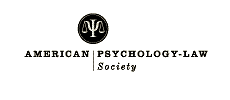Forensic Psychology Research Lab
What is Forensic Psychology?
Forensic psychology is one of the fastest growing areas in psychology. Broadly speaking, it refers to the various intersections between the fields of law and psychology. As such, it involves the application of scientific and professional aspects of social, cognitive, clinical, counseling, and developmental psychology to questions and issues relating to law and the legal system. For students interested in more information about forensic psychology, including careers and training opportunities in the field, see http://www.ap-ls.org/students/careersoverview.html and http://www.apa.org/research/action/law.aspx
Professional Development

Members of the Forensic Psychology Research Lab also typically belong to the American Psychology-Law Society (AP-LS). AP-LS is an interdisciplinary organization devoted to scholarship, practice, and public service in psychology and law. As both a free-standing organization, as well as a division (Division 41) of the American Psychological Association, it promotes the psychology's contributions to the "understanding of law and legal institutions, the education of psychologists in legal matters and law personnel in psychological matters, and the application of psychology in the legal system."
Scholarly Activities
The Forensic Psychology Research Lab was designed to explore issues related to psychology and law from the PARC database. It also collaborates with the work of other researchers, including those in the Positive Psychology Research Lab. For example, work from the dissertation proposals of doctoral students Ani Khatchadourian and Renee Sloane was accepted for presentation at the Pepperdine GSEP Multicultural Research and Training Lab and the Los Angeles County Psychological Association Convention in Fall 2010:
- Khatchadourian, A., & Hall, S. R. (2010, Oct.). Addressing autonomy when working to promote posttraumatic growth with culturally diverse psychotherapy clients. Poster presentation at the Los Angeles County Psychological Association Convention, Culver City, CA.
- Sloane, R., & Hall, S. R. (2010, Oct.). Examining trainee therapists’ use of Calhoun and Tedeschi’s recommendations for facilitating posttraumatic growth in psychotherapy: A qualitative analysis. Poster presentation accepted at the Los Angeles County Psychological Association Convention, Culver City, CA.
Former forensic lab members' work has also gained national recognition:
- Tangeman, K., & Hall, S. R. (2011). Self-efficacy in incarcerated adolescents: The role of family and social supports. Child & Youth Services, 32 (1), 39-55.
- Carusone, J. G., & Hall, S. R. (2006, August). A positive psychological approach to understanding police officers' stress experiences and coping strategies: A qualitative investigation. Poster presented at the American Psychological Association Convention, New Orleans, LA.
Interest Areas Include:
- Adult and child client understanding of consent and HIPAA procedures
- Impact of videotaped sessions on clients, especially children and adolescents
- Exploration of child and adolescent client concerns regarding confidentiality
- Trauma, maltreatment, sexual assault, PTSD